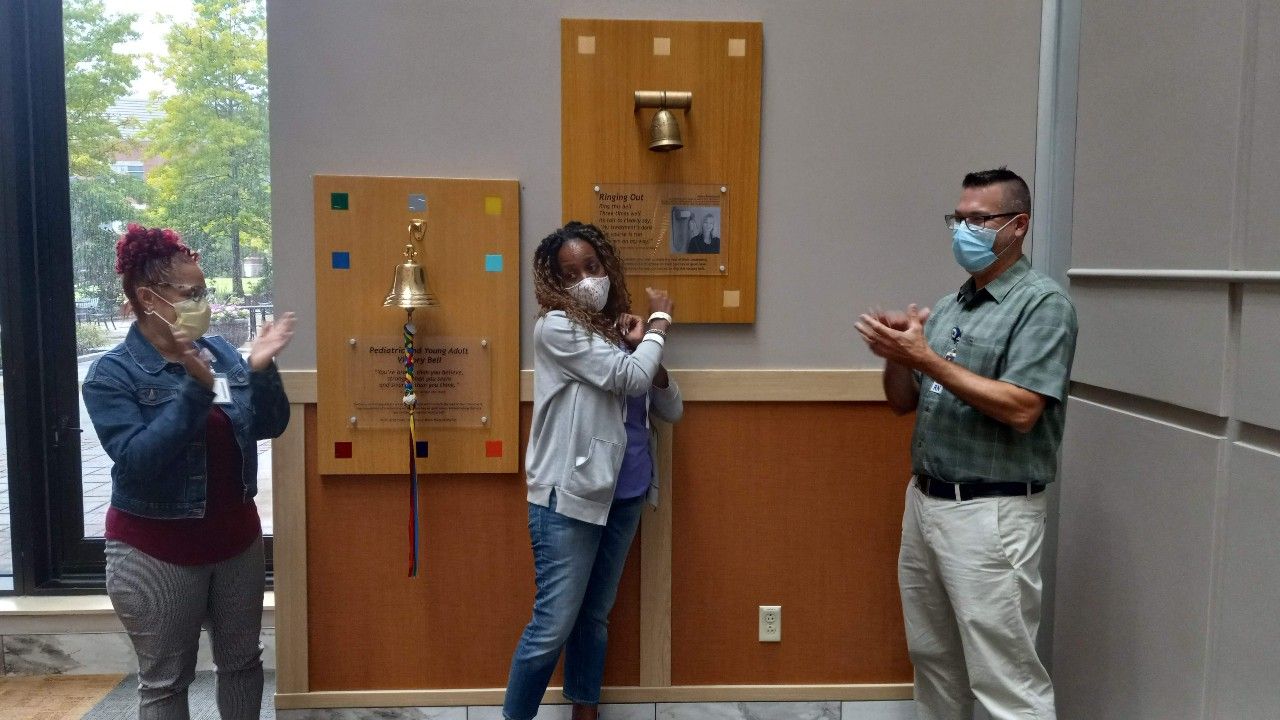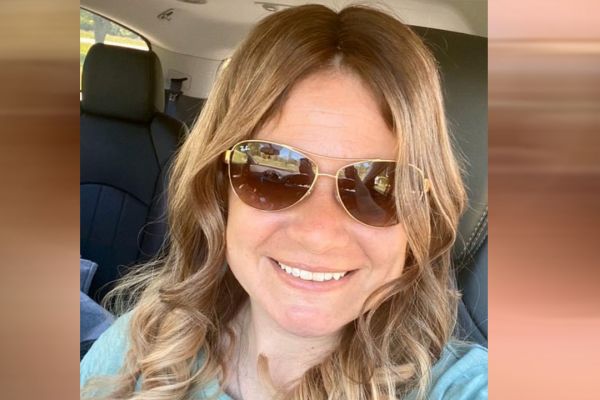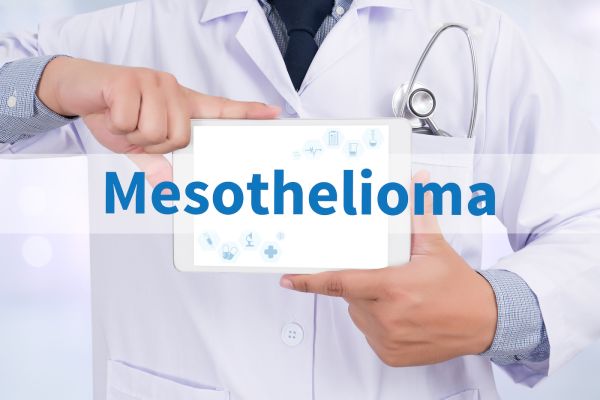There was no history of cancer in Shawn Y. Thurmond’s family before her diagnosis.
In 2014, Shawn was 44, feeling fine and going about her life, spending time with her family and her close group of friends, when she began to notice some discomfort in her pelvic region. She called her gynecologist and set up an appointment because she knew something wasn’t right.
Her third visit to her gynecologist’s office, in which the doctor felt something out of the ordinary, led to a biopsy and the diagnosis of cervical cancer. “I ended up having a hysterectomy. I was supposed to have a robotic procedure but, when they started it, the mass was too big. It was an aggressive cancer,” she says. “They ended up cutting me as well and sent everything out for another biopsy again.”
That’s when she received more surprising information: Shawn not only had cervical cancer, but there was a small mass of mesothelioma in the same area as well. Most people associate mesothelioma with the lungs, as it usually relates to exposure to asbestos or other lung irritants. But mesothelioma can be found other places in the body, such as the abdomen, and has been found in teenagers as well as older adults.
“The specimen they removed had a tiny focus of mesothelioma in the soft tissue around her uterus,” said John Kane III, MD, FACS, former Chair of Surgical Oncology and Chief of the Melanoma/Sarcoma Service at Roswell Park Comprehensive Cancer Center. “That’s very unusual. She was sent to me by her gynecologist so we could do cytoreductive surgery hyperthermic intraperitoneal chemoperfusion.”
Cytoreductive surgery hyperthermic intraperitoneal chemoperfusion (CS/HIPEC) is a procedure in which liquid, heated chemotherapy is administered inside a person’s body cavity in the operating room after removing the tumors. CS/HIPEC has become a standard care option for mesothelioma that occurs outside of a person’s lungs, and Roswell Park is among the few places to offer this treatment.
“When CS/HIPEC has been administered, there’s a 70% or greater cure rate for mesothelioma,” Dr. Kane said.
The mesothelioma found in Shawn’s tissue removed during her hysterectomy was not a large lesion but it was solid, which also is unusual because mesothelioma typically is a surface malignancy. “It’s floating around in the space in your belly. It lands in other places, creating fluid, and it floats around in that fluid," Dr. Kane says. “But for some people, as they were a developing fetus, spots of peritoneum get trapped in deeper tissue. In theory, that could become mesothelioma, as it did for Shawn."
Get a second opinion at Roswell Park
A second opinion is particularly important if you have a hard-to-diagnose or a rare type of cancer — we can arrange to obtain your testing or scans, have our experts review them right away.
It took a little longer than expected for Shawn to recover from her hysterectomy, in part because the tumor was larger than previously thought by her doctors at another facility. When she learned a second form of cancer was found during surgery, she decided she didn’t want to go through it again. “I felt my body couldn’t take it again,” she says. “I did some research on my options before I met with Dr. Kane. I knew what the options were. When we met, he explained everything and I had an idea of what he was going to say. I told him I don’t think I can handle another surgery and he said it was up to me, if I didn’t want the surgery, I didn’t have to have it.”
Initially, Shawn resigned to having only a little time left. She made her peace with it rather than face another surgery. But after speaking with Dr. Kane about her options, they decided to wait a while before making any decisions. They wanted to see if her cancers came back. Her friends and family instantly rallied around her and tried to convince her to do the surgery if any additional tumors were found.
A positive turn of events
But after several years of monitoring, Shawn’s cancer didn’t come back. Last summer, seven years after her initial surgery, she rang the Victory Bell at Roswell Park.
“I’m doing great!,” she says. “The ironic part is, I never ended up getting the treatment because they were able to get all the cancer in that first surgery, even though they didn’t know the mesothelioma was there at first. They got it all out. I still haven’t been released from monitoring by my gynecologist but I’m released from Roswell Park. Everything just worked.”
Shawn has started her own jewelry business and can be found in Roswell Park’s farmer's market during the summer. She continues to be in good health and has no additional complications from her dual diagnosis.
That’s why she wanted to share her story. “People need to have hope,” she says. “If I could be a little bit of hope and shed some light to someone else to keep going, I want to. My story is rare. For anybody going through treatment, stay as positive as you can. Of course you’ll have your moments, you’ll feel dispirited. Have your moment but don’t stay there. For the caregivers, lead with care, lead with love.”
Editor’s Note: Cancer patient outcomes and experiences may vary, even for those with the same type of cancer. An individual patient’s story should not be used as a prediction of how another patient will respond to treatment. Roswell Park is transparent about the survival rates of our patients as compared to national standards, and provides this information, when available, within the cancer type sections of this website.



